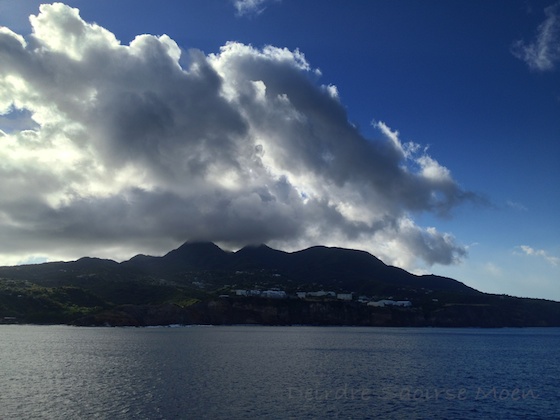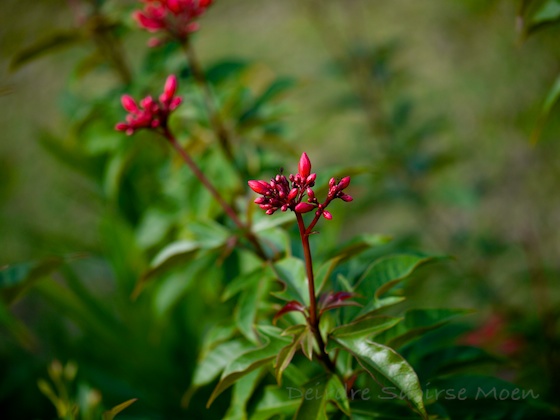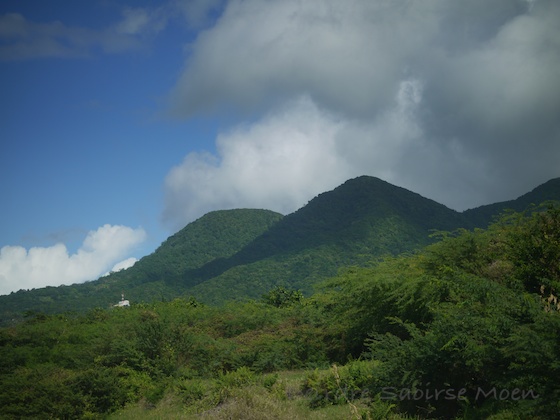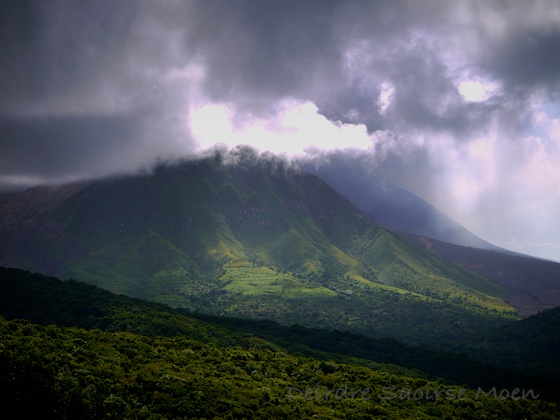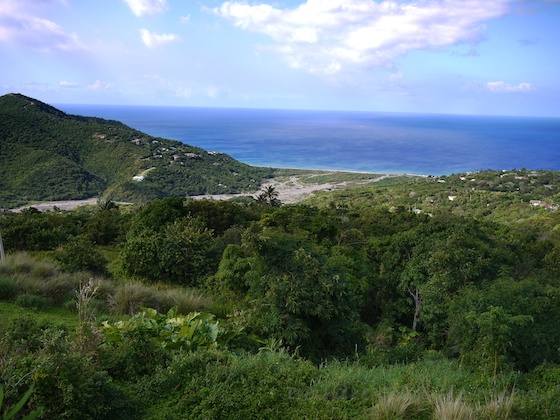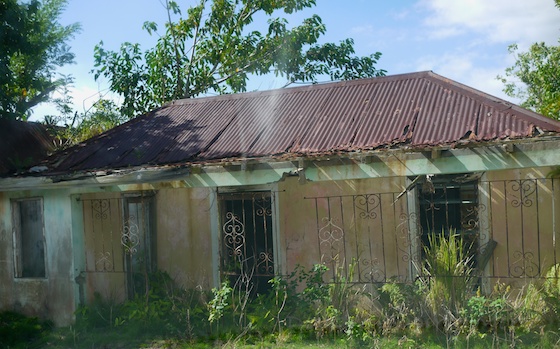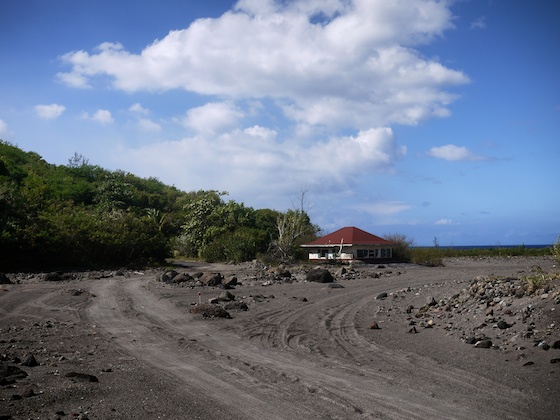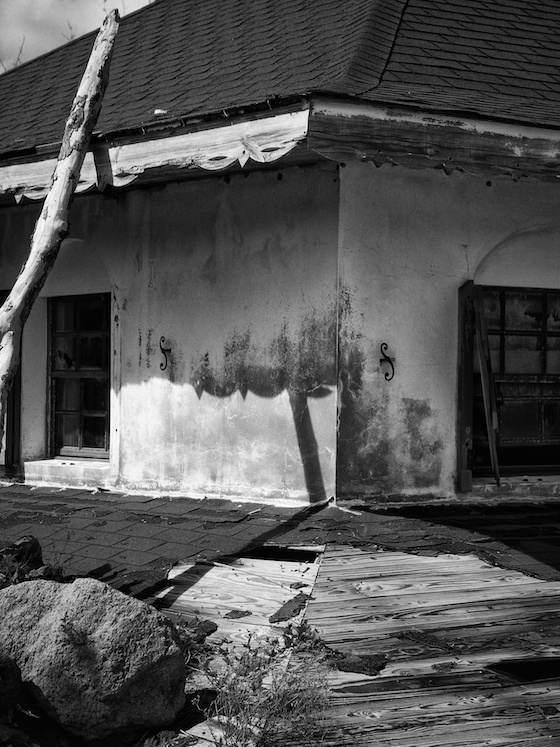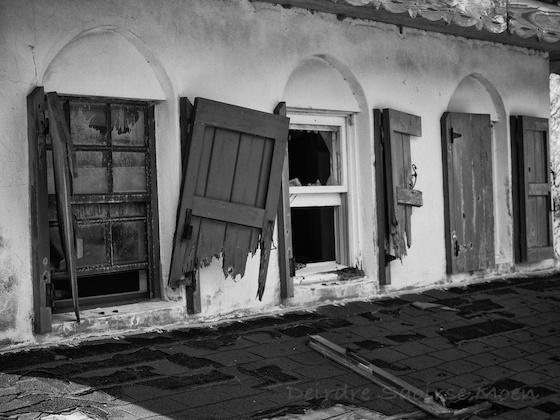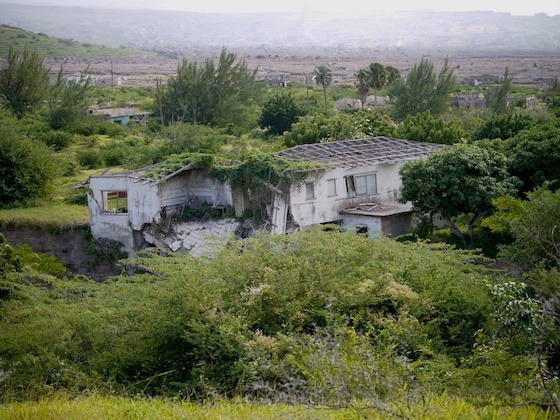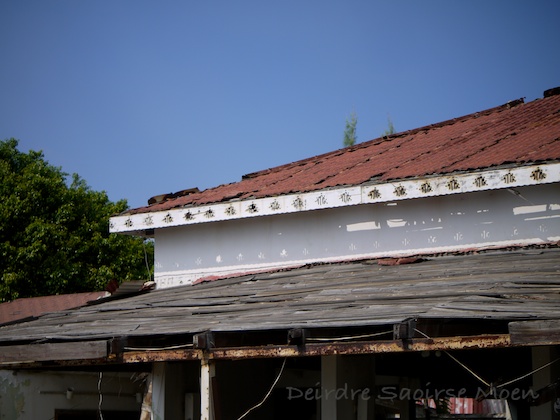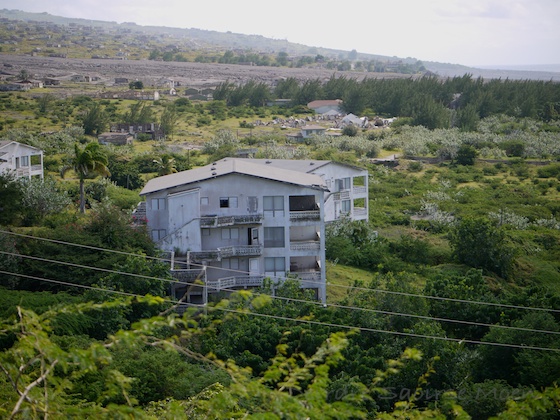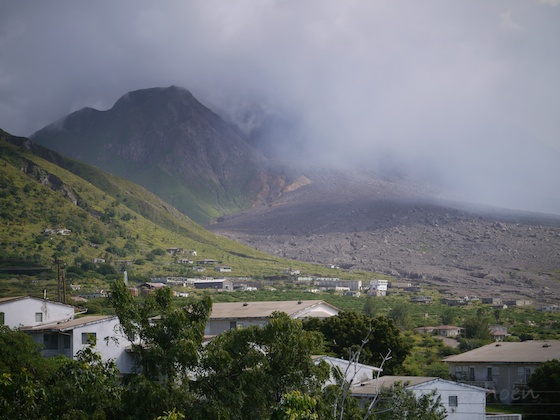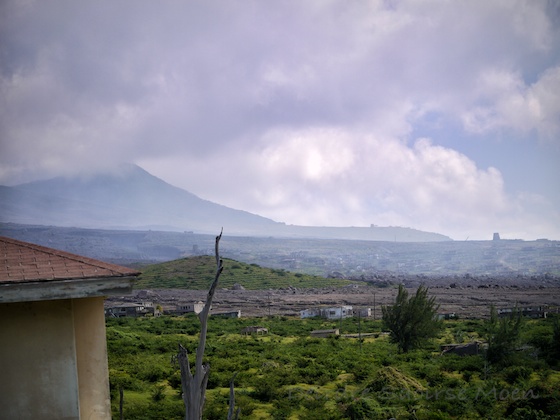One Year Ago Today: Into the Exclusion Zone
25 December 2013
Montserrat’s a beautiful place. As you sail in, it looks like many other islands in the Caribbean with some nice mountains with clouds surrounding them (as is so often the case with islands). We landed at Little Bay, which is at the north of the island.
We tour the local sights, including the proposed location of the new capital, and hear about how so many thousands of people on this tiny island have had to flee; over half of it is still in an exclusion zone, though there are (apparently) multiple, nested, exclusion zones.
The island has some lovely flora.
And, as we drive to the south, lovely mountain views to the north.
It was once a huge tourist destination where the rich and famous vacationed. Where a number of famous albums were recorded, including Jimmy Buffet’s song Volcano. Before that, it was one of the locations of many Irish slaves and indentured servants. In 1768, on St. Patrick’s Day, the Irish slaves revolted, but slavery was not officially abolished until much later.
At present, it’s known for how greeen it is.
Our buses trundle along, and our driver says she doesn’t think we’ll get into the exclusion zone. It’s Christmas Day, after all, and the police have to open it up, and they’re home with their families. We pull to the side of the road right before the first locked gate, aka the first level of the exclusion zone. Cruise staff go to a building near the gate with a couple of locals, and voila, we have a key.
Clearly, something was arranged in advance.
So we head up into the exclusion zone, but most of the homes look, well, normal. Like places that had been abandoned, but not in bad shape.
When we drive over a ridge and finally see the first real effects of the volcano at Belham Valley. It doesn’t look so bad. A small river of dirt, right?
On our way down to Belham Valley, we see an abandoned house. The driver pauses for a moment to point out that the volcanic gases have dissolved the steel roof over the last 18 years, and that every single building we’ll see has similar structural damage that may not be as visible.
We take the road in through the second exclusion zone gate and pull up to a well-traveled spot. We’re warned not to walk off the path where people have driven because the ground isn’t as settled as we think it is. The volcanic ash is much, much deeper than we think.
This house?
Was three stories tall. B.V. Before volcano.
You can walk up to and (if you’re brave and/or stupid) stand on the second story roof.
It’s not hard to see the volcano damage to the details of the structure.
We drive further into the exclusion zone, through a third gate. Some houses are really obviously damaged for good.
While others don’t look so bad unless you look more closely.
We climb through what used to be a hillside hotel, but is now a lookout point. Some of the houses look almost normal if it weren’t for the river of ash in the background.
Then, turning to the left, you see just how much ash there is, burying everything at least 2-3 stories for miles.
The lower half of the island is just a plain of desolation that used to be a capital city. The ash is not particularly compact, so in some cases it’s not even a little bit traversible.
It’s the weirdest thing. It doesn’t feel safe, yet it doesn’t feel as unsafe as it actually is. I had that experience in Hawaii, too.
